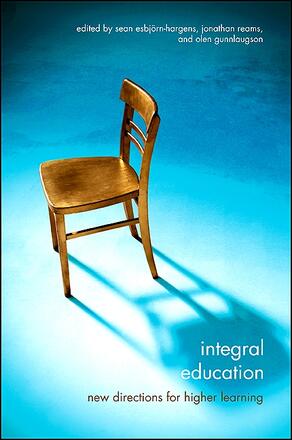
Integral Education
New Directions for Higher Learning
Alternative formats available from:
Leading researchers and practitioners explore the frontiers of education from an integral perspective.
Description
The educational challenges being faced today are driving us toward a new step in the evolution of educational theory and practice. Educators are called to go beyond simply presenting alternatives, to integrating the best of mainstream and alternative approaches and taking them to the next level. Integral Education accomplishes this by bringing together leading researchers and practitioners from higher education who are actively exploring the frontiers of education from an integral perspective. It presents an overview of the emerging landscape of integral education from a variety of theoretical and applied perspectives. Key characteristics of integral education include: exploring multiple perspectives, employing different pedagogical techniques (e.g., reflective, dialogical, empirical), combining conceptual rigor with embodied experience, drawing on developmental psychology, and cultivating a reflective and transformative space for students and teachers alike. Integral Education provides the most comprehensive synopsis of this exciting new approach and serves as a valuable resource for any integral effort within education.
Sean Esbjörn-Hargens is Associate Professor and Founding Chair of the Integral Theory Program at John F. Kennedy University. He is the editor of Integral Theory in Action: Applied, Theoretical, and Constructive Perspectives on the AQAL Model, also published by SUNY Press, and Executive Editor of the Journal of Integral Theory and Practice. Jonathan Reams is Associate Professor of Education at the Norwegian University of Science and Technology and Editor-in-Chief of Integral Review. Olen Gunnlaugson is a Postdoc Associate at Simon Fraser University.